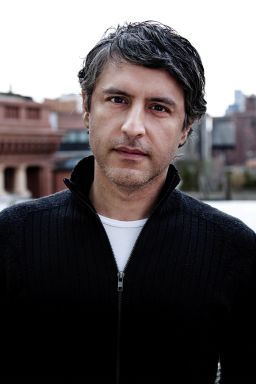Editor’s Note: Reza Aslan is the author of “Zealot: The Life and Times of Jesus of Nazareth” and the host of CNN’s new original series Believer: With Reza Aslan. The views expressed are his own.
Story highlights
Reza Aslan: Donald Trump's anti-Muslim fear-mongering became a hallmark of his divisive campaign
It's no surprise the President-elect has gathered around him a circle of advisers who share his views on Islam, Aslan says
Asked on ABC whether the President-elect agrees with the assessment of his new National Security Adviser, Gen. Michael Flynn, that “Islam is not a real religion, but a political ideology masked behind a religion,” Reince Preibus responded, “Well, I think so.”
The soon-to-be White House Chief of Staff, and the symbol of the GOP establishment in Donald Trump’s new cabinet, went on to repeat the usual rigmarole about how “the phrasing can always be done differently,” but that “clearly there are some aspects of that faith that are problematic.”

Put aside for a moment that Preibus was asked whether our new president agrees with a specific phrase about Islam not being a real religion – that he was making no distinction whatsoever between “aspects of the faith,” and the faith itself. When asked in a separate interview on “Meet the Press” whether he would rule out the possibility of creating “a registry for Muslims,” Preibus replied that a Trump administration would not have a registry based on a religion, but also that he was “not going to rule out anything” – which is an absolute contradiction.
There can be no question that the President-elect’s overt Islamophobia and anti-Muslim fear-mongering became a hallmark of his divisive campaign. At various points in his bid to become President of the United States, Trump has: stated that “Islam hates us”; called for a ban on Muslims entering the country; advocated monitoring Muslim neighborhoods; and peddled grotesque and observably false lies about American Muslims celebrating the attacks of 9/11.
Indeed, during the campaign, Trump appeared to express an openness to creating a database for all Muslims in the United States. Asked by ABC News if he would rule out a database on all Muslims, he said, flatly, “No, not at all.”
Judging from these comments, one shouldn’t be surprised that the President-elect has gathered around him a circle of advisers and cabinet members who eagerly share his views on Islam and Muslims.
His chief adviser, Steve Bannon, burnished his Crusader credentials at a conference held at the Vatican in 2014, where he reportedly argued that “we’re at the very beginning stages of a very brutal and bloody conflict” that will require the creation of a “church militant,” lest it “completely eradicate everything that we’ve been bequeathed over the last 2,000, 2,500 years.”
His attack dog and rumored potential pick for Secretary of State, Rudy Giuliani, has suggested that Muslims on the government’s watch list should be electronically tagged.
A rumored choice for heading the Department of Homeland Security, David Clarke, has proposed setting up patrols to target Muslim neighborhoods.
And his choice for National Security Adviser, Michael Flynn, has described Islam as “like cancer,” has tweeted that “fear of Muslims is rational,” and, as mentioned, doesn’t even believe Islam is actually a religion.
And now, we are told by the new Chief of Staff that Flynn is “in line with how President-elect Trump views Islam.”
Understand what this would mean: the man responsible for enforcing the Constitution of the United States believes that Islam is “not a real religion.” And if Islam is not a real religion, then American Muslims do not have the same first amendment religious rights that members of all the other “real” religions in the United States enjoy.
Perhaps such statements would not be so startling if the President-elect’s surrogates were not referencing Japanese internment camps when arguing for the plausibility of a Muslim registry, or if the President-elect himself had not once suggested that he’d be willing to put Americans into the Guantanamo Bay prison camp in Cuba.
Of course, the President-elect’s supporters would say that the threat of Islamic terrorism on Americans makes all of these once unthinkable ideas necessary. Trump’s pick for director of the CIA, Mike Pompeo, put it this way: “When the most devastating terrorist attacks on America in the last 20 years come overwhelmingly from people of a single faith and are performed in the name of that faith, a special obligation falls on those that are the leaders of that faith.”
Views on the Trump Transition
Well, I couldn’t agree more with Congressman Pompeo. It’s just that according to the FBI, 94% of terrorist attacks in the United States from 1980 to 2005 were perpetrated by non-Muslims.
In fact, as the Department of Homeland Security, the FBI, and the majority of law enforcement officials around the country have concluded, the gravest domestic terrorist threat is not from foreign terrorists, but from white nationalists, white supremacists, and anti-government terror groups who are, as it happens, overwhelmingly in support of the President-elect.
So I agree with Congressmen Pompeo that there is an obligation on the leaders of the radical faiths of white supremacism and white nationalism to speak out. As it happens, in this case, the leaders of this movement are currently preparing to move into the White House. And I, for one, am eager to hear what the incoming President of the United States has to say to the members of these “faiths” who have, over the last few weeks, unleashed an unprecedented wave of hate across the country in his name.

